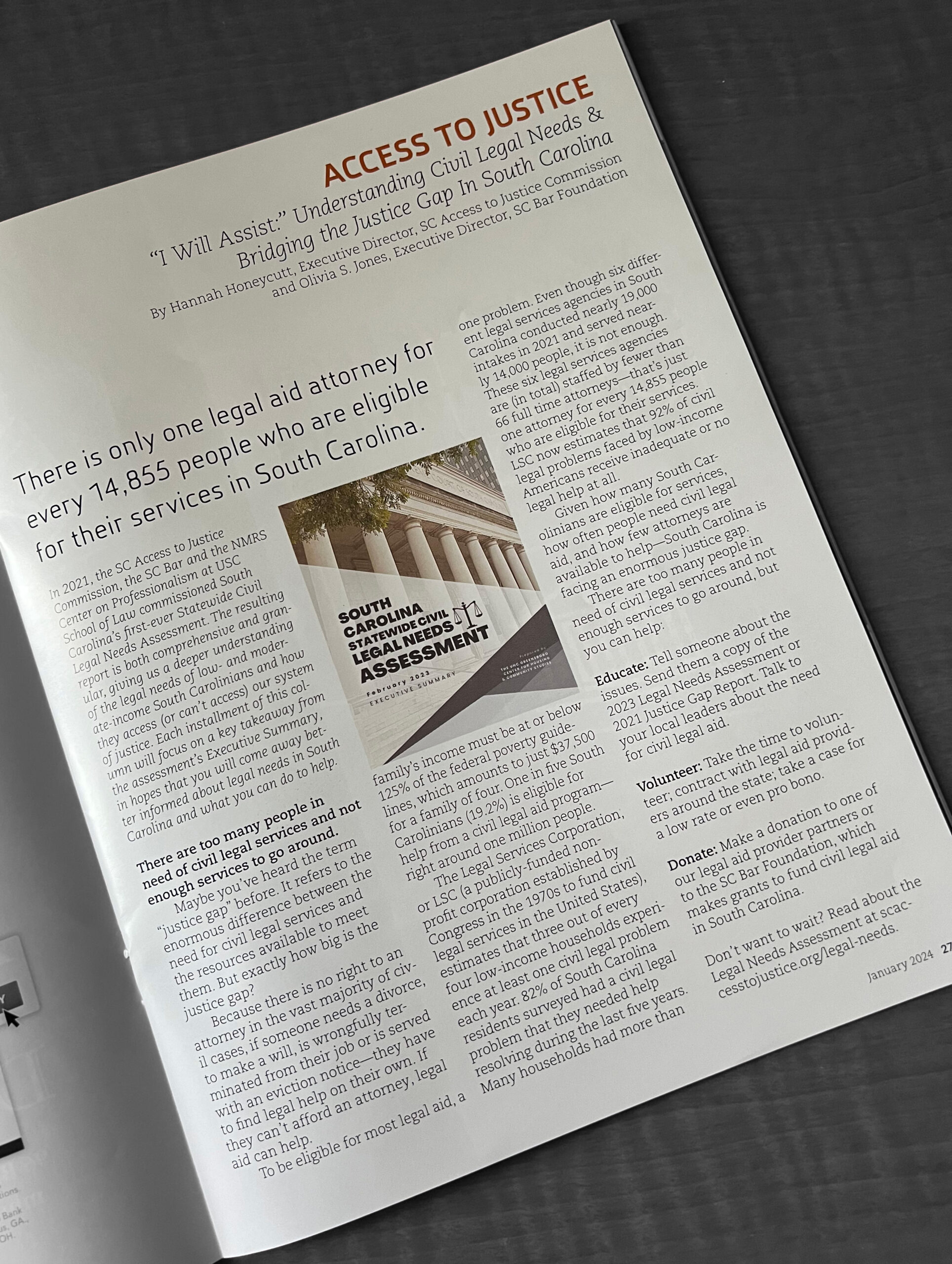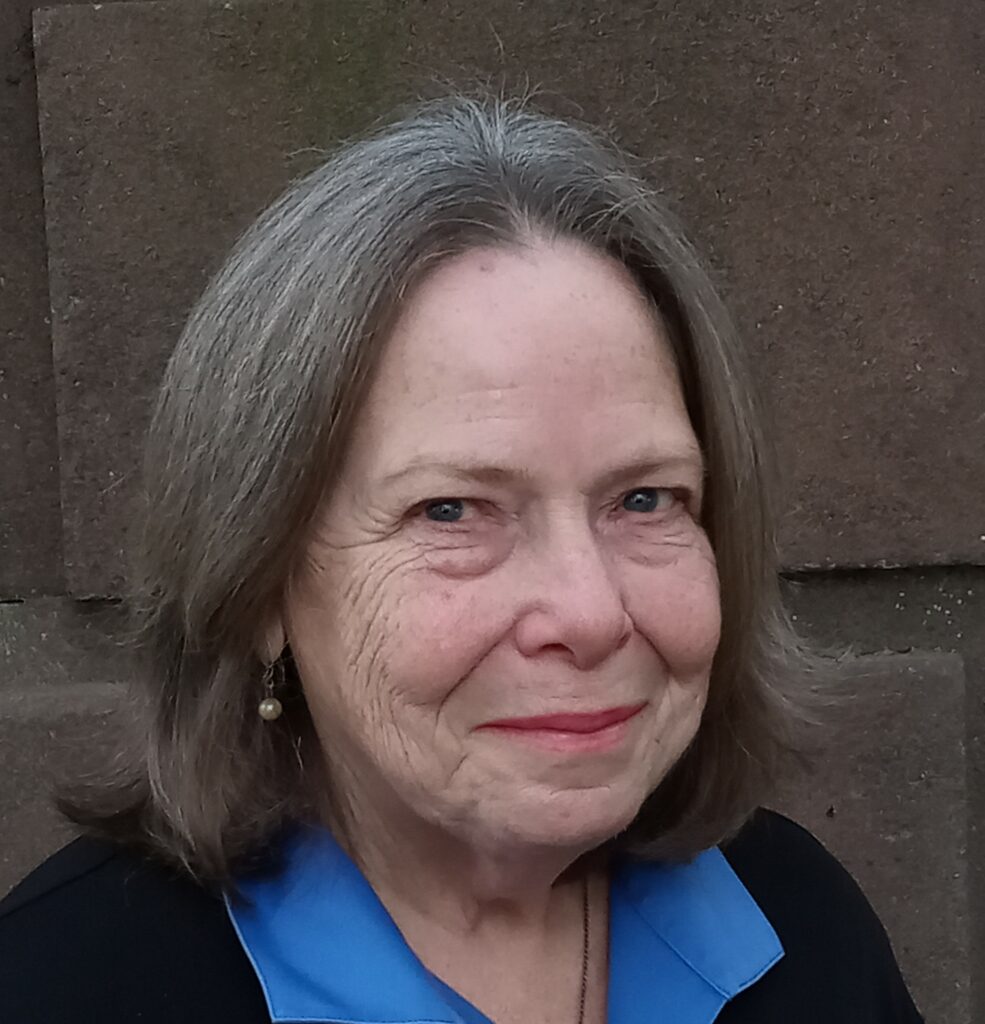In 2021, the South Carolina Access to Justice Commission launched a comprehensive assessment of the civil legal needs landscape in South Carolina. It was the first such study ever.
Few would be surprised to learn that there are access issues in our state. But this effort sought details that would make it easier and more practical to address the needs. It set out to learn about the specific legal needs of citizens of low and moderate incomes, to identify resources available to meet them, and to find ways to match resources to the need.
Recently, Executive Director Olivia Jones of the SC Bar Foundation was talking about the study with Hannah Honeycutt, executive director of the commission.
 “We wondered, how are lawyers accessing this?” said Jones. “There’s been a lot of buzz” since the study came out, but were enough of the people who could address the problem seeing the study and absorbing its findings?
“We wondered, how are lawyers accessing this?” said Jones. “There’s been a lot of buzz” since the study came out, but were enough of the people who could address the problem seeing the study and absorbing its findings?
The two women decided to ask for space in SC Lawyer magazine to raise the study’s visibility. The editors of the Bar publication were generous, which led to a series of columns by Honeycutt and Jones addressing key findings of the study. The first two installments ran in the January and March editions.
Here’s a link to the first, and here’s the second.
Those articles address the first two of a dozen key takeaways set out by the study:
I. There are too many people in need of civil legal services and not enough services to go around.
II. It really makes a difference when you have a lawyer.
III. Housing and family law are the areas of greatest need for legal services, with debt collection, access to public benefits, immigration, and domestic violence also identified as areas of need.
IV. Lives in crisis present big challenges for legal services providers.
V. Concern about cost is the biggest reason that people do not seek legal help, but there are other reasons.
VI. Legal service agencies are looking for more ways to reach out to communities in need.
VII. South Carolina attorneys do not contribute enough pro bono services.
VIII. Reforms that would expand the roles of paralegals and other nonlawyers haven't gained consensus among lawyers.
IX. Where you live affects access to legal services.
X. The caseload of South Carolina civil courts is heavy, and concentrated in counties with lower incomes, more unemployment, and higher proportions of black residents.
XI. By quantitative and qualitative measures, legal services resources are well spent.
XII. Support for expanded legal services is widespread in South Carolina.
The idea behind the series is to encourage attorneys who have not thoroughly absorbed the study’s findings to take a closer look.
“I’m hoping that it will help us direct our resources better,” said Jones. Among other things, it could help the Foundation determine how to best direct grants going forward.





